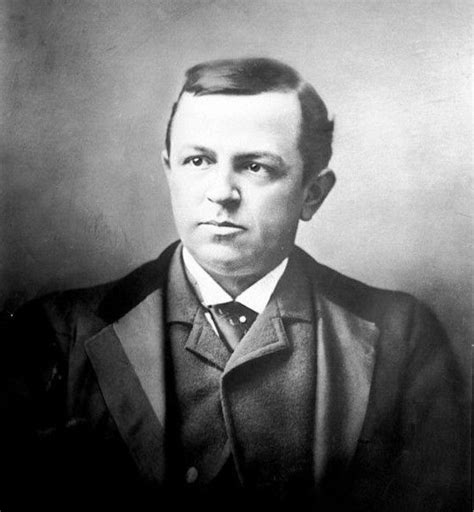A Quote by Walter Lippmann
What we call a democratic society might be defined for certain purposes as one in which the majority is always prepared to put down a revolutionary minority.
Related Quotes
Truth always rests with the minority, and the minority is always stronger than the majority, because the minority is generally formed by those who really have an opinion, while the strength of a majority is illusory, formed by the gangs who have no opinion - and who, therefore, in the next instant (when it is evident that the minority is the stronger) assume its opinion ... while Truth again reverts to a new minority.
Taken as a whole, the Chinese revolutionary movement led by the Communist Party embraces the two stages, i.e., the democratic and the socialist revolutions, which are two essentially different revolutionary processes, and the second process can be carried through only after the first has been completed. The democratic revolution is the necessary preparation for the socialist revolution, and the socialist revolution is the inevitable sequel to the democratic revolution. The ultimate aim for which all communists strive is to bring about a socialist and communist society.
We become pitiable and ridiculous when we imbibe an unreasoned mysticism in our life without any natural or substantial basis. People like us, who are proud to be revolutionary in every sense, should always be prepared to bear all the difficulties, anxieties, pain and suffering which we invite upon ourselves by the struggles initiated by us and for which we call ourselves revolutionary.
What I call middle-class society is any society that becomes rigidified in predetermined forms, forbidding all evolution, all gains, all progress, all discovery. I call middle-class a closed society in which life has no taste, in which the air is tainted, in which ideas and men are corrupt. And I think that a man who takes a stand against this death is in a sense a revolutionary.
I call government that works the best for people open society, which is basically just another more general term for a democracy that is - you call it maybe a liberal democracy. It's not only majority rule but also respect for minorities and minority opinions and the rule of law. So it's really a sort of institutional democracy.
The society of merchants can be defined as a society in which things disappear in favor of signs. When a ruling class measures its fortunes, not by the acre of land or the ingot of gold, but by the number of figures corresponding ideally to a certain number of exchange operations, it thereby condemns itself to setting a certain kind of humbug at the center of its experience and its universe. A society founded on signs is, in its essence, an artificial society in which man's carnal truth is handled as something artificial.
The power under the Constitution will always be in the people. It is entrusted for certain defined purposes, and for a certain limited period, to representatives of their own choosing; and whenever it is executed contrary to their interest, or not agreeable to their wishes, their servants can, and undoubtedly will, be recalled.
All of those on the left, as I am, have always vastly preferred the democratic society over the hierarchical society and still do, but the democratic culture doesn't exist without highly informed citizens capable of thinking well, and if you have schools in which 40 percent of the people coming out of them cannot make change for a dollar, you don't have a democracy. You have a sibling society.
One has to give minority groups a kind of reward, an emotional reward, that it is worthwhile assimilating to this particular majority group. And if this majority group looks down on itself ... If a minority group is not given some pride in assimilating to the culture of another group then the process is very difficult.
The Greeks... labored under the delusion that their democracy was a guarantee of peace and plenty, not realizing that unrestrained majority rule always destroys freedom, puts the minority at the mercy of the mob, and works at cross-purposes to the effective use of human energy and individual initiative.
































